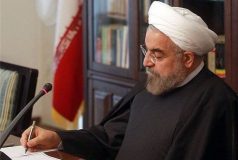Zarif made the remarks in an interview with CNN’s Fareed Zakaria broadcast on Sunday, as he was asked by Zakaria “Are you surprised by how week the Europeans have been? They talk about providing an alternative payment system. They sort of set one up. But, let’s face it. It’s not working.”
Zarif answered, “Well, it hasn’t started to work. It should. It is a source of concern, I think, more for the Europeans than for us, that they have not been able to basically assert themselves.”
“Europe is, together, a larger economy than the United States. Certainly if all European oil companies, plus the Chinese and Indians and Russians and the Japanese decide to neglect U.S. sanctions, the United States will not be able, the international economy won’t bear it for the United States to put sanctions on all of these companies,” the chief diplomat remarked.
Europe’s financial channel with Iran, called INSTEX, was set up as a trade vehicle in a bid to protect the Iranian economy from Washington’s sanctions. But its scope is severely limited, with just 10 of the European Union’s 28 nations taking part and a credit line just a fraction of pre-sanctions trade.
Crucially, INSTEX at this time only covers humanitarian goods, allowing the U.S. chokehold on key Iranian exports – notably oil – to suffocate Iran’s economy.
On Friday, The Financial Times reported that Russia wants European efforts to get around U.S. sanctions on Iran to include Tehran’s lucrative oil exports and has thrown its weight behind INSTEX.
The British news outlet quoted a Russian Foreign Ministry spokesman as saying, “The full potential of INSTEX will only be able to be deployed if it will be open to the participation of countries which are not members of the European Union.”
“If the encouraging statements by the EU… will be backed up by concrete steps and practical advances, including in relation to the use of INSTEX for servicing trading in Iranian oil, it will help stabilize the difficult situation created around the JCPOA,” said the spokesman, whose name was withheld.
If Moscow were to join the mechanism, it would be a major boost to European efforts to save the 2015 nuclear deal (known as the Joint Comprehensive Plan of Action or JCPOA), which has been unravelling in recent weeks.
The JCPOA, agreed between Iran and world powers, was designed to offer sanctions relief to Iran, unfreezing billions of dollars in Iranian assets held around the globe, in exchange for Iran curbing its nuclear program.
But in 2018, President Donald Trump unilaterally withdrew the U.S. from the deal and imposed a raft of severe sanctions on Iran. Trump threatened secondary sanctions against companies operating in other countries, inviting corporate leaders to “make a choice” between doing business in Iran or the U.S.
Over the past year, Iran has been looking to European signatories to the deal for support and has said that INSTEX, if it could not help resume Iran’s oil trade, was next to useless.
If the other signatories to the JCPOA would or could not uphold their side of the deal, Iran would also begin to reduce its commitment to the agreement.
In recent weeks, Iran has begun enriching uranium to a higher degree of purity than had been agreed under the deal, while building its stockpiles of fissile material – not least because under the sanctions regime, it can’t export what it produces anyway.
European powers are open to the idea of bringing Russia into INSTEX, officials told the FT.
“The issue of whether or not INSTEX will deal with oil is a discussion that is ongoing among the shareholders,” outgoing EU foreign policy chief Federica Mogherini said earlier this week.
SP/PA
- entehaj admin
- کد خبر 4693
- پرینت





